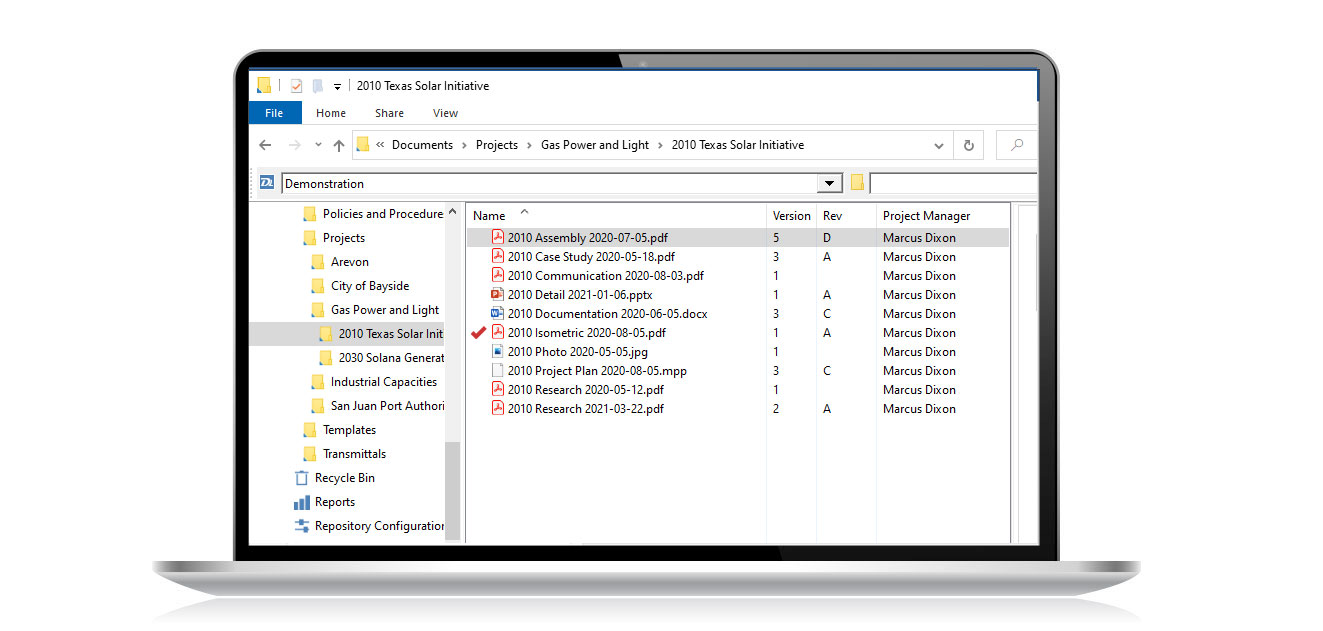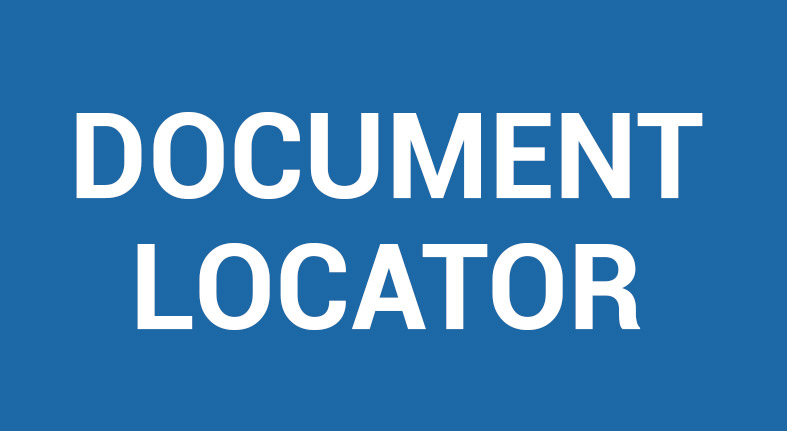Proven performance with SQL
Document Locator leverages Microsoft SQL Server (Standard Edition or above) for on premise operations, and Microsoft Azure for cloud deployments. Microsoft SQL delivers maximum performance and flexibility as your document management needs evolve over time. Its proven performance and affordability provides a stable and reliable foundation for Document Locator.
With millions of installed sites worldwide and first-place achievements in multiple comparison studies, Microsoft SQL Server has a well-earned reputation as a proven enterprise database solution for all application needs. Document Locator leverages SQL Server by:
- Taking advantage of many SQL Server features including stored procedures, indexes, optimized queries, and more.
- Utilizing the SQL Server interface with Microsoft Search to provide full-text indexing functionality using iFilters.
- Offering the option of running 64-bit versions of the software for additional performance gains.

Leveraging the proven performance of Microsoft SQL Server for reliable, scalable performance for systems large and small.
Reliability you can depend on
Built on the foundation of SQL Server technology, information is always accessible, safe, and recoverable. Microsoft continually works to maintain SQL Server as a bullet-proof application, and provides numerous tools to help manage issues outside of the database such as power failure, hard-disk failures, unauthorized access attempts, etc. Document Locator itself is rigorously tested, with a record of solid compatibility and high performance in current Microsoft computing environments. Among the advantages are:
- Support for clustered environments that provide automatic failover protection in situations of hardware failure.
- Support for RAID-based disk storage options that allow users to “hot swap” disk drives.
- Database mirroring to provide a real-time duplicated copy of the database.
- Configurable database maintenance plans that allow for automatically scheduled backups of the database and transaction logs.
- Provides military-grade internal security to protect against unauthorized user access.
Scalable to match your needs
Flexibly manage and add users, add repositories, scale and upgrade hardware, and control information processes without interrupting availability. Document Locator is engineered to be fully scalable and can expand to match the information management needs of your organization over time.
Best-in-class design specification and development minimizes memory consumption, processor requirements, data transfer, and hard drive consumption on both the server and client side. Among the technologies employed are: disconnected record-sets, cyclic redundancy checks, low-level data transfers, memory caching, stored procedures, optimized queries, and more. As business requirements expand, Document Locator scales through hardware component upgrades including memory, processor speeds, number of processors, back-end storage facilities, network bandwidth, etc.
- Utilizes industry-standard TCP/IP or Named Pipes networking protocols.
- Multiple repositories can be installed on same server or different servers.
- Database connectivity is provided by Microsoft’s Data Access Layer (MDAC 2.8) and SQL Server APIs.
- Provides comprehensive security and auditing at the application level and employs a “single-blind” security architecture at the database level.
- Permits Windows NT Authentication which allows Document Locator users to be deactivated at the Domain level.
- Can store and manage individual files up to 2 GB in size.
- Files are stored inside of a SQL Server database, presenting administrators a single backup / recovery environment.
Read more
Learn more
Be ready for the next audit
Employee files under control
Structured project files
Automate business processes
Ready for a Demo?
Take the first step towards streamlining your processes and enhancing collaboration with Document Locator. Request a demo today and discover how our document control solution can help your organization.
Fill out the form to get started.




